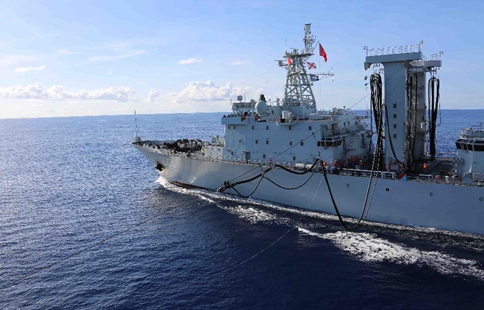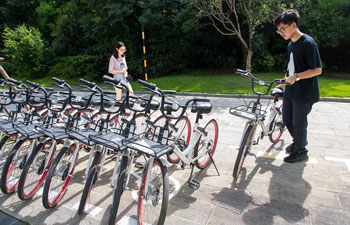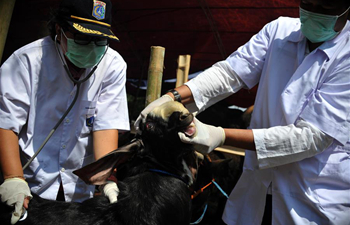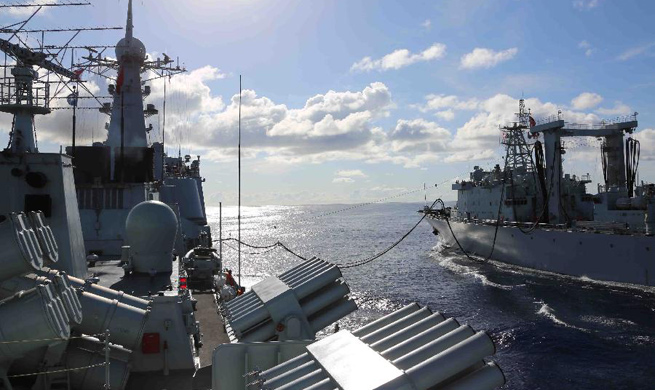LONDON, Aug. 25 (Xinhua) -- Convoys of driverless freight trucks are to be trialed next year on British motorways, the Department for Transport (DfT) announced Friday.
The British government announced funding of 10.4 million U.S. dollars to pay for the trials that will see heavy goods vehicles platooning on major motorway routes.
Trucks will travel in convoys of three vehicles with synchronised acceleration, braking and steering controlled using wireless technology by the lead vehicle, said the DfT who believes truck platooning could have major benefits for motorists and businesses in Britain.
The DfT said all vehicles in the platoon will always have a driver aboard as a precaution, ready to take control at any time.
"If successful, this technology could have major benefits for motorists and businesses in the UK," said a spokesman for the DfT, "A row of lorries driving closer together could see the front truck pushing the air out of the way, making the vehicles in the convoy more efficient, lowering emissions and improving air quality."
The British Department for Transport and Highways has yet to confirm which roads will be the base for the first tests.
Track tests will be carried out in the first phase of the trials to help determine whether the convoys can be safely tested on motorways. Full road tests will take place before the end of the year.
Transport Minister Paul Maynard said the technology will improve people's lives. "Advances such as lorry platooning could benefit businesses through cheaper fuel bills and other road users thanks to lower emissions and less congestion. But first we must make sure the technology is safe and works well on our roads, and that's why we are investing in these trials."
The trial will be carried out by the Transport Research Laboratory (TRL) with funding provided by the Department for Transport and Highways England. It follows a government-funded feasibility study which recommended a trial to examine the benefits and viability of platooning.
The trial will be carried out in 3 phases, with the first focusing on the potential for platooning on the UK's major roads. Initial test track based research will help decide details such as distance between vehicles and on which roads the tests could take place. Each phase of the testing will only begin when there is robust evidence that it can be done safely.
An earlier attempt to launch tests in the United Kingdom, heralded in the spring budget of 2016, stalled after a fruitless search for a heavy goods vehicle (HGV) manufacturer to participate.
Supporters say that the ability to connect HGVs in automated convoys has the potential to drive down costs and cut congestion emissions as well as increasing road capacity. The lead vehicle pushes the air aside allowing those a short distance behind to travel more efficiently in the slipstream.
However, the motoring organisation, which has voiced concerns about safety, said the test was not suitable for the motorways in the UK. They fear platoons could obscure signs and exits on Britain's crowded roads.
Edmund King, president of the Automobile Associations, voiced his concerns, saying: "We all want to promote fuel efficiency and reduce congestion but we are not yet convinced that lorry platooning on UK motorways is the way to go about it. We have some of the busiest motorways in Europe with many more exits and entries. Platooning may work on the miles of deserted freeways in Arizona or Nevada but this is not America."

















